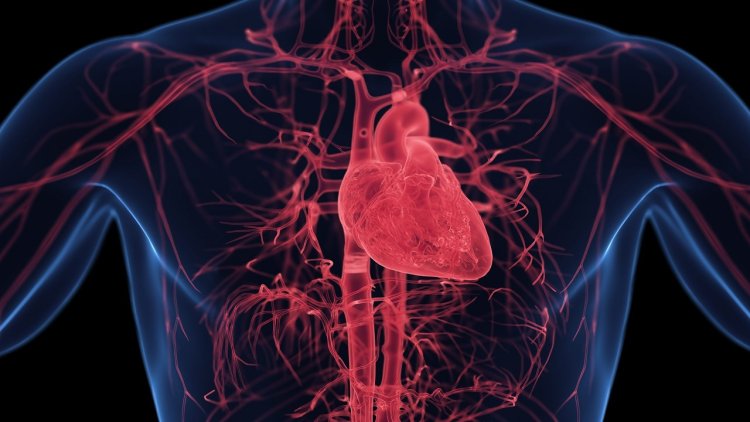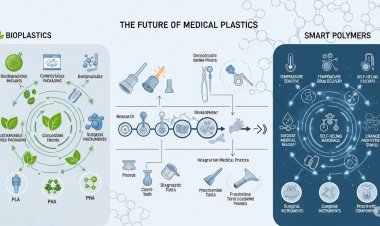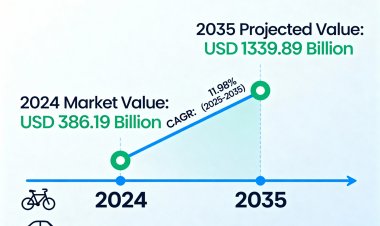Hypertrophic Cardiomyopathy (HCM) Treatment: Emerging Therapies and Market Trends in 2025
Discover the latest advancements in Hypertrophic Cardiomyopathy (HCM) treatment, including gene therapy, RNA-based treatments, small molecule drugs, and CRISPR. Explore key market trends, regulatory updates, and personalized medicine approaches shaping HCM treatment in 2025.

The heart muscle suffers from the complicated potentially fatal disease called Hypertrophic Cardiomyopathy (HCM). The heart muscle dysfunction of HCM produces abnormal heart muscle enlargement mainly in the left ventricle which increases the risk of multiple cardiac complications such as heart failure alongside arrhythmias and sudden cardiac arrest. Hypertrophic Cardiomyopathy treatment will experience major transformations through medical research developments and innovative therapies which align with shifting market trends in 2025.
Our comprehensive Hypertrophic Cardiomyopathy (HCM) Treatment Market report ready with the latest trends, growth opportunities, and strategic analysis- View Sample Report PDF
What is Hypertrophic Cardiomyopathy (HCM)?
Quantitative research shows Hypertrophic Cardiomyopathy (HCM) functions as a prevalent inherited cardiac illness which affects about 1 out of 500 worldwide population. Hypertrophic Cardiomyopathy results from gene mutations expressing heat muscle proteins which activates heart muscle thickening known as hypertrophy. A difficult blood flow occurs from the heart because of this thickening process which impedes the heart's pumping function.
HCM causes diverse symptoms between its less severe and more serious manifestations. People exhibit different symptom manifestations when affected by this disease from no damage at all or developing shortness of breath along with chest pain and dizziness culminating in fainting episodes. People with this condition face the risk of dangerous complications which include atrial fibrillation together with blood clots leading to stroke and sudden cardiac death. Patients need both early diagnostic intervention and treatment since these elements are vital for managing HCM and enhancing their quality of life.
Traditional Approaches to HCM Treatment
Historically, the treatment of HCM has focused on managing symptoms and preventing complications. The mainstay of treatment has included:
- Medications: Beta-blockers, calcium channel blockers, and antiarrhythmic drugs are commonly used to control symptoms like chest pain, palpitations, and arrhythmias.
- Surgical Intervention: For patients with significant obstruction of blood flow, surgical procedures like septal myectomy (removal of excess heart muscle tissue) or alcohol septal ablation (a procedure to shrink the thickened muscle tissue) have been employed.
- Implantable Devices: In cases where arrhythmias are a concern, patients may receive implantable cardioverter-defibrillators (ICDs) to prevent sudden cardiac arrest.
These treatments offer relief to numerous patients but they still have certain drawbacks which prevent them from resolving genetic HCM in its fundamental form. Researchers now direct their research toward finding modern therapeutic methods that provide focused remedies for managing HCM better.
Take Action Now: Secure your Hypertrophic Cardiomyopathy (HCM) Treatment industry today – Purchase Now

Emerging Therapies in HCM Treatment
The medical field for HCM treatment continues to transform because various investigational therapies have demonstrated positive results in clinical research. The treatments intend to solve HCM's root causes while managing its symptomatology at the molecular level.
Gene Therapy
Gene therapy develops into an innovative medical technique for genetic disorder treatment including HCM. The exact mutations responsible for HCM serve as targets in gene therapy approaches which have confirmed potential to treat the genetic issue and stop hypertrophy from occurring.
The implementation of HCM gene therapy stands at a preliminary stage during 2025 because multiple clinical trials continue to advance. The research uses viral vectors to transport genetic restorations of damaged genes into heart tissue. The success of gene therapy treatments for HCM could establish a single permanent solution which would eliminate the requirement for both drug treatments and operations among patients.
RNA-Based Therapies
HCM treatment options include a advancing therapeutic category known as RNA-based strategies. The therapies specifically aim at messenger RNA (mRNA) which produces abnormal proteins resulting in heart muscle thickening. The medical techniques based on RNA interference together with antisense oligonucleotides assist in stopping faulty protein production thus delaying disease progression.
A number of RNA-based therapies currently undergo clinical trials for HCM treatment at 2025. The initial clinical findings suggest positive effects because several treatments show their ability to decrease heart muscle enlargement while enhancing heart performance in patients. These treatments will develop into vital components within the treatment options available for patients with HCM.
Small Molecule Drugs
Medical researchers develop small molecule drugs which focus on blocking essential biochemical patterns that contribute to HCM development. Scientists identify myosin inhibitors as a promising small molecule drug group. The medications operate by weakening the heart muscle contractions thus reducing obstruction-related symptoms and enhancing blood circulation.
Medical trials for myosin inhibitor drugs like mavacamten and aficamten returned promising results during the recent years. The myosin protein serves as the main target for these pharmaceutical drugs because it controls muscle contraction mechanics. These drugs block myosin action to decrease heart muscle thickening thus leading to better symptoms during breathlessness and exercise challenges.
The regulatory bodies of multiple regions granted approval to mavacamten for obstructive HCM symptomatic treatment in 2025. Myosin inhibitor aficamten is predicted to launch in the near future thus creating additional treatment choices for patients with HCM.
CRISPR-Cas9 Technology
The CRISPR-Cas9 gene editing technology has changed genetic medicine because research teams look into treating inherited diseases using this methodology particularly for HCM. This exact DNA sequence editing method gives scientists the capability to fix HCM-causing mutations directly in the genome.
Although still in its early stages, CRISPR-based therapies hold tremendous potential for curing genetic diseases like HCM. In 2025, clinical trials using CRISPR-Cas9 technology to correct HCM-related mutations are expected to move forward, offering hope for a future where genetic heart diseases can be effectively treated or even eradicated.
Market Trends in HCM Treatment in 2025
As the treatment landscape for HCM evolves, so too does the market for HCM therapies. Several key market trends are shaping the future of HCM treatment in 2025:
Increased Investment in Cardiovascular Research
The research investment for cardiovascular diseases has risen dramatically since recent years especially for studying rare disorders such as HCM. Many pharmaceutical and biotech organizations along with academic centers dedicate escalating funding toward HCM pharmaceutical development. A significant increase in research funding stimulates innovative medical advancements and speeds up treatment development work resulting in potential breakthroughs for HCM treatment.
Personalized Medicine
The field of HCM therapy has started to strongly adopt personalized medicine as a major treatment approach. Genetic testing alongside molecular profiling makes it possible for healthcare providers to select treatments that meet each patient's medical requirements. Doctors can determine suitable therapeutic options for each patient with HCM by identifying their particular genetic mutations which allows selection of treatments that include gene therapies or small molecule drugs or RNA-based regimens.
The move toward personalized medicine possesses strong potential to enhance treatment results for HCM patients because it allows medical practitioners to create therapies which directly address the genetic components of their disease. The management strategies for HCM will show rising prominence toward precision medicine in 2025.
Regulatory Approvals and Market Growth
The drug mavacamten and other newly approved HCM therapies will substantially enlarge the HCM treatment market. More approved therapies will enhance available treatment choices for patients. Better market competition as a result of new treatments permits expanded accessibility and reduced HCM treatment costs for patients worldwide.
Healthcare systems worldwide need to establish new provisions to manage the rising need for specialized HCM medical services as understanding of the disease improves alongside new therapy development. The healthcare sector should create new treatment guidelines while establishing provider training and diagnostic tool accessibility for patients.
Telemedicine and Digital Health
The management of HCM dramatically benefits from telemedicine alongside digital health technologies. Patients with HCM use remote monitoring tools and wearable devices as well as telehealth consultations to enhance their condition management which reduces their reliance on in-person healthcare facility visits.
Telemedicine will become standardized medical care for HCM patients by 2025 which will make expert care convenient for underserved geographic areas. Better heart function monitoring capabilities through digital health technologies helps healthcare providers implement timely changes to treatment plans.
For Hypertrophic Cardiomyopathy (HCM) Treatment Market Report and updates detailed: View Full Report Now!
Conclusion
Hypertrophic Cardiomyopathy (HCM) treatment stands at a transformative point today because recently developed gene therapy along with RNA-based treatments and small molecule drugs offer new potential therapeutic options to patients. The HCM treatment market is projected to develop through 2025 because of advancing cardiovascular research funding together with rising personalized medicine applications combined with newly approved medical solutions. HCM treatment will continue to advance throughout the coming years and patients can anticipate improved targeted treatments that will cure the disease effectively while enhancing their daily life quality.
For an in-depth analysis of market forecasts, key players, and regional trends, explore the detailed Hypertrophic Cardiomyopathy (HCM) Treatment Market report by Vantage Market Research.


















